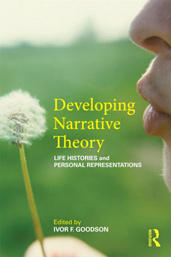Developing Narrative Theory: life histories and personal representation
Narrativity, Learning and Flexibility: towards the narrative future
In his remarkable study of American life, Robert Putnam has documented a similar kind of atrophying of American public purpose. He contrasts the baby boomer generation, who emerged as a social and political force in the 1960s, with the contemporary ‘Generation X’ers’:
Unlike boomers, who were once engaged, X’ers have never made the connection to politics, so they emphasise the personal and private over the public and collective. Moreover, they are visually oriented, perpetual surfers, multi-taskers, interactive media specialists. In both personal and national terms, this generation is shaped by uncertainty (especially given the slow growth, inflation-prone 1970s and 1980s), insecurity (for these are the children of the divorce explosion), and an absence of collective success stories – no victorious D-Day and triumph over Hitler, no exhilarating, liberating marches on Washington and triumph over racism and war, indeed hardly any ‘great collective events’ at all. For understandable reasons, this cohort is very inwardly focussed. (Putnam 2001: 259).
Putnam shows how, at every level in American life, social activities and public purposes are in dramatic decline. To employ the previous analogy with wildlife, the ‘global warming’ of globalization is destroying the existing social ecology at a dramatic and unprecedented rate. The changes have come within one generation, an incredibly short time span in human history.
Middle-aged and older people are more active in organisation than younger people, attend church more often, vote more regularly, both read and watch the news more frequently, are less misanthropic and more philanthropic, are most interested in politics, work on more community projects, and volunteer more. (ibid.: 247–248)
Putnam notes the change affects the range of passions, purposes and meanings: yet not all social networks have atrophied. Thin, single-stranded, surf-by interactions are gradually replacing dense, multi-stranded, well exercised bonds. More of our social connectedness is one-shot special purpose and self-oriented.
